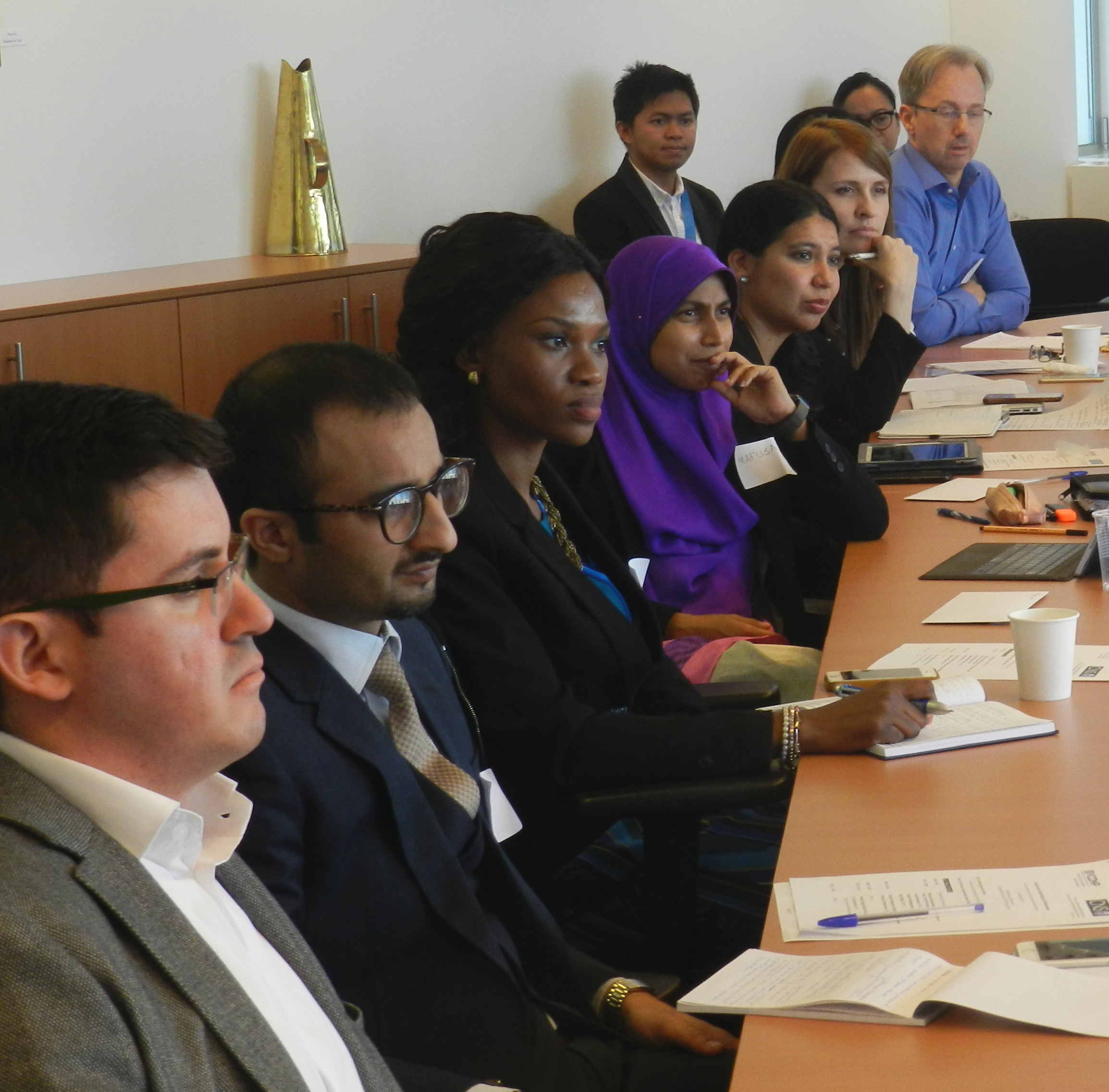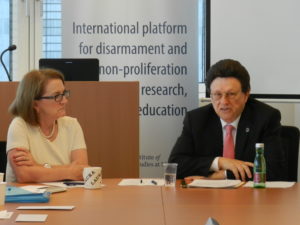
From 16 to 20 October 2017, the VCDNP and the James Martin Center for Nonproliferation Studies (CNS) hosted their fourteenth bi-annual intensive short course on nuclear non-proliferation and disarmament in Vienna, Austria.
Course participants were a diverse group of diplomats from 21 countries in Africa, the Middle East, South East Asia, South America and Europe. Women made up more than 50 percent of the participants and 44 percent of lecturers and guest speakers.

The course is designed to provide an intensive one-week review of the nuclear non-proliferation regime, its history, constituent elements and current status, as well as an introduction to nuclear disarmament and arms control. Topics covered in the short course program included technical fundamentals of the nuclear fuel cycle; the Treaty on the Non-Proliferation of Nuclear Weapons (NPT) and its review process; the International Atomic Energy Agency (IAEA) and implementation of safeguards; the Comprehensive Nuclear-Test-Ban Treaty (CTBT) and its verification system; US-Russian nuclear arms control; and case studies on current matters of global concern such as nuclear and missile programs of the Democratic People’s Republic of Korea (DPRK) and the future of the Joint Comprehensive Plan of Action (JCPOA).
The timing of the short course allowed the participants to attend a briefing and discussion on the Treaty on the Prohibition of Nuclear Weapons (TPNW) which took place on Tuesday, 17 October 2017. Open to the public, the briefing was organized by the VCDNP in cooperation with the Permanent Mission of Ireland to the International Organizations in Vienna, hosted by the Permanent Mission of Japan to the International Organizations in Vienna. The panel consisted of Ambassador Thomas Hanney from Ireland, Ambassador Mitsuru Kitano from Japan, Ambassador Maria Zeneida Angara Collinson from the Philippines, and the VCDNP’s Ms. Gaukhar Mukhatzhanova. VCDNP Executive Director Ms. Laura Rockwood moderated the discussion. The speakers briefed the audience on the background, the motivations behind, and the negotiation of the TPNW, which opened for signature on 20 September 2017. The seminar also assessed the potential impact of the new Treaty on the non-proliferation regime and the NPT review process.
Course participants also had an opportunity to visit the Comprehensive Nuclear-Test-Ban Treaty Organization’s (CTBTO) International Data Centre and get acquainted with the work of the CTBTO’s International Monitoring System. The visit to the CTBTO was followed by a tour of the IAEA Safeguards Laboratory and the Incident and Emergency Centre. During the visits, participants received a practical insight into the roles and responsibilities of both international organizations, their operations and contributions to non-proliferation.

A number of experts and senior officials from the Vienna-based international organizations and missions gave presentations at the course, including Dr. Grant Spence (IAEA), Jean-Philippe Morizot (IAEA), Ambassador Wael Al-Assad (League of Arab States), Danielle Dahlstrom (IAEA), and Bozorgmehr Ziaran (CTBTO). The VCDNP and CNS lecturers were Dr. William Potter (CNS), Laura Rockwood (VCDNP), Dr. Nikolai Sokov (CNS), Gaukhar Mukhatzhanova (VCDNP), Andrea Berger (CNS), Ian Stewart (VCDNP/King’s College), and David Schmerler (CNS).
View the course agenda here.
The VCDNP continued to engage course alumni in the program and hosted a roundtable discussion with three Vienna-based past course participants. The three alumni shared lessons they had learned while working in Vienna and provided views on how the VCDNP course contributed to their knowledge of the field.
At the end of the course, participants completed an anonymous evaluation, where the participants were able to rate different aspects of the course and provide suggestions for further improvement. Survey results and comments from the participants indicate a high level of satisfaction with the course and its usefulness for practitioners in nuclear disarmament and non-proliferation. Below are some of the comments provided by the participants (quoted as written):
“The course was intensive but very well-structured, covering the important aspects of disarmament and non-proliferation. Very good for putting order into an extensive and complicated topic.”
“The course provided me with ‘necessary’ tools that I can use from now on, including up-to-date information.”
“The course was able to cover all my areas of concern being a newcomer [working in] nuclear non-proliferation and disarmament issues.”
“The right topics, the right place, the right teachers.”
The VCDNP extends its gratitude to the Carnegie Corporation of New York for its generous support that made this course possible.